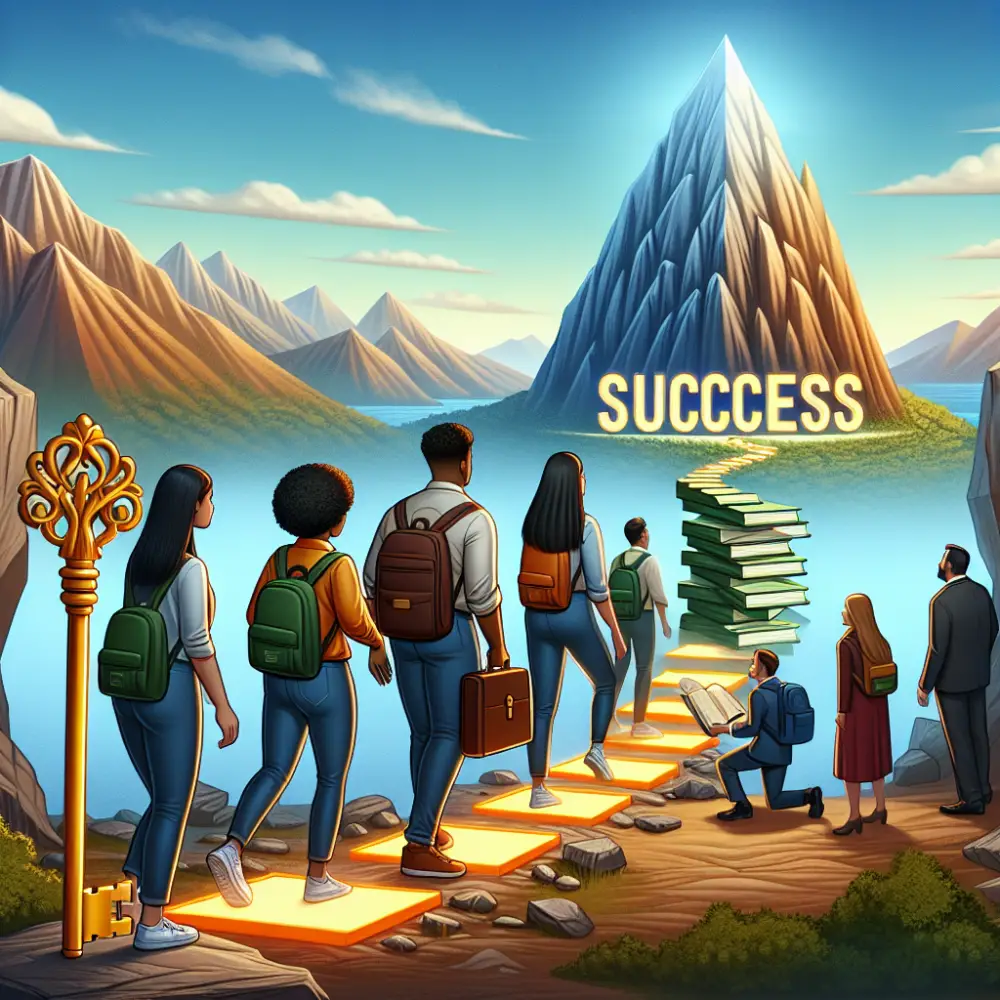
h2 {
font-weight: bold;
}
Navigating the Path to Success: Scholarships Empowering First-Generation Students
Success often requires overcoming various challenges, but for first-generation students, the path to success can be particularly steep. These students are the first in their families to pursue higher education, facing numerous obstacles that their peers may not fully understand or relate to. However, scholarships play a vital role in empowering these students and enabling them to navigate the complexities of higher education successfully. By providing financial support, mentorship opportunities, and a sense of belonging, scholarships offer critical resources that can make a significant difference in the lives of first-generation students.
First-generation students often face financial strains that can hinder their pursuit of higher education. They may come from low-income households where financial resources are limited, making it difficult to afford tuition fees, textbooks, and other educational expenses. Scholarships alleviate this burden by providing funds that cover or contribute towards these costs. Through scholarships, first-generation students gain access to educational opportunities that would have otherwise been unattainable.
The Power of Mentorship
Another crucial aspect of scholarships for first-generation students is the opportunity for mentorship. Many scholarship programs connect recipients with experienced professionals who serve as mentors and guides throughout their educational journey. These mentors offer advice on academic matters, career choices, and personal development. They understand the unique challenges faced by first-generation students and provide valuable insights and support.
Mentorship relationships foster a sense of belonging and help bridge the gap between academia and real-world experiences. Guidance from mentors helps first-generation students navigate unfamiliar territory within higher education and gain clarity about their future goals. Mentorship also cultivates a network of professionals who can offer internships, job opportunities, and further guidance beyond graduation.
Fostering a Sense of Belonging
First-generation students often experience feelings of isolation and imposter syndrome in higher education settings due to their unfamiliarity with the academic landscape. Scholarships counteract these challenges by creating a supportive community of like-minded individuals who share similar experiences. Connecting with fellow scholarship recipients who are also first-generation students helps combat the sense of isolation and provides a support system throughout their academic journey.
Scholarships frequently organize events, workshops, and networking opportunities specifically catering to first-generation students. These initiatives facilitate connections, foster friendships, and provide a safe space where students can discuss their challenges openly. By fostering a sense of belonging, scholarships empower first-generation students to overcome obstacles and thrive academically.
FAQ
1. How can first-generation students find scholarships?
First-generation students can begin their search for scholarships by exploring online databases specifically targeting their demographic. They can also reach out to high school guidance counselors or college financial aid offices for information on available scholarships.
2. What criteria do scholarship programs typically consider?
Scholarship programs consider various factors when evaluating applicants. These may include academic achievements, extracurricular involvement, leadership potential, personal essays or statements of purpose, financial need, and letters of recommendation.
3. Are scholarships only available to high school seniors?
No, scholarships are not exclusively available to high school seniors. Many scholarships cater to students at different stages of their education – from incoming freshmen to graduate students – as well as non-traditional students who may be returning to education after a break.
4. How do scholarships benefit the wider community?
Scholarships not only benefit individual students but also contribute to the overall growth and diversity of our society. By supporting first-generation students, scholarships empower individuals who may have faced barriers otherwise, enabling them to pursue higher education and ultimately contribute their unique talents and perspectives to various fields.
5. What are some notable scholarship programs for first-generation students?
There are several notable scholarship programs specifically designed for first-generation students. Some examples include the Gates Millennium Scholars Program, the QuestBridge National College Match, and the Dell Scholars Program. Researching these programs can provide valuable options for first-generation students seeking financial assistance.












